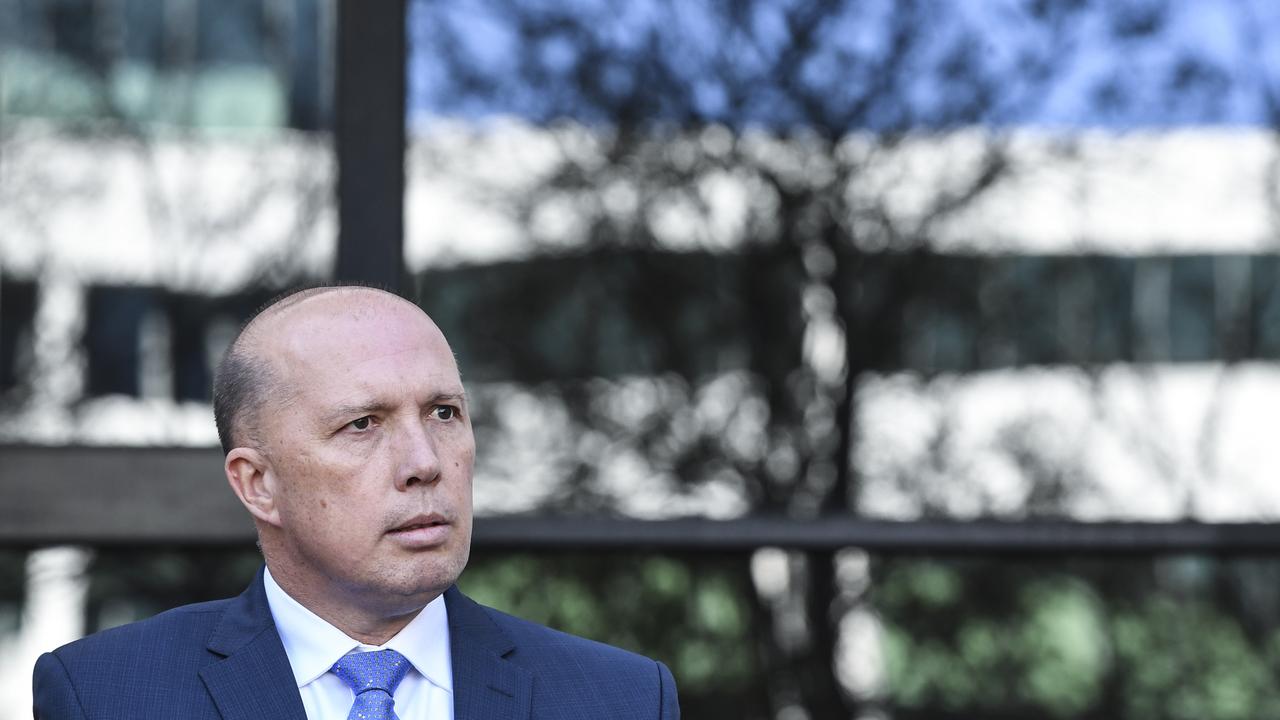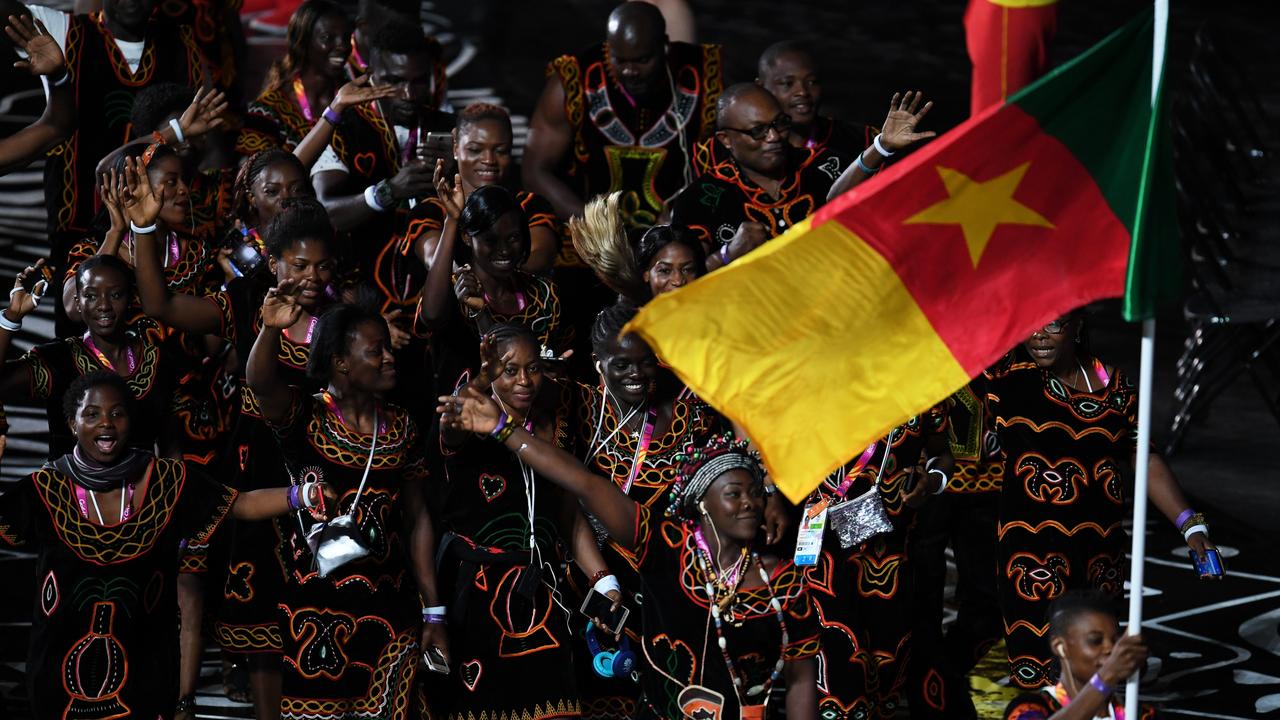Gold Coast delivers the Stoked Games
Get five different observers to write their list of top five moments of the Games and you’d get, well, five different lists. Here’s one.

The Stoked Games had tall winners, short winners, fat winners, skinny winners, relieved winners, gracious winners, runaway winners, last-gasp winners, unexpected winners and disbelieving winners.
They had long-odds winners and short-odds losers. They had winners with powerful legs and one arm. They had winners with small legs and half an arm. They had winners with no arms and not much of a leg to stand on. Stoked.
They had a little kid in a wheelchair screaming at Kurt Fearnley as that magnificent Novocastrian went flying through Southport yesterday in the marathon. “Onya Kurt!” he called out, gripping his own chair with the wide-eyed wonder of a young man who saw someone in Fearnley, and something in para-sport, that might now be in his future.
They had the devastation of Claire Tallent’s disqualification in the walk. The sheer awkwardness of Caster Semenya’s dominance on the track. The circus around Laurel Hubbard. They had Milly Tapper winning a ding-dong at the ping pong. Malawi’s netballers toppling the Silver Ferns. Flag-bearer Mark Knowles walking with the Australian team rather than in front of them.
They had grandstand finishes decided by a fingernail at the swimming relays. They had Scotsman Callum Hawkins collapsing twice when gold beckoned in the marathon. They had three Australian runners — Celia Sullohern, Madeline Hills and Eloise Wellings — stopping and waiting five minutes for Lethoso’s last-placed Lineo Chaka to finish. They hugged her. Congratulated her. Stoked.
They had world crossfit champion Tia-Clair Toomey winning weightlifting gold the week after her cousin was killed in a car accident. The Games had Chris Remkes going from a Filipino orphanage to the podium. They had a former ice addict, South Africa’s Luvo Manyonga, winning the long jump. They had 61 Australian para-athletes winning 46 medals, including 16 gold. They had Chloe Hosking offering a new slogan for the Commonwealth movement: “It’s a big f … ing deal!” Put that on a poster for Birmingham.
Get five different observers to write their list of top five moments of the Games and you’d get, well, five different lists. Here’s one.

5 Skye Nicolson
Her hand-on- heart reaction to the boxer’s gold medal in the 57kg division. The Pat Cash routine of climbing into the grandstand to hug her parents. Her pre-fight “little chat” to Jamie and Gavin, the brothers she never knew. The Jamie Nicolson Memorial Gym, up at Yatala, was a sight for sore eyes. The next best thing to the Yatala Pie Shop. Her father, Allan, was standing in his living room last Thursday, gold chain around his neck. Mini-boxing gloves were on the chain. He was laughing at being called “dirt poor” when he was growing up in Scotland.
“Dirt poor!” he said. “Dirt poor means you literally have dirt as your floor. We were poor, but we weren’t dirt poor! We had floorboards!”
What a family. What big-hearted beautiful people. Skye hasn’t fallen far from the tree. She’s a walking, talking Hollywood movie script. Not just because of the gold-medal moment. Because of the years of training in the Jamie Nicolson Memorial Boxing Gym — just a big tin shed in her backyard — when no one was looking. “I’m so stoked,” she said.

4 Matthew Glaetzer
The cyclist was ashen-faced, teary-eyed, stunned, shocked and in complete mental disarray when he had the humiliation and regret of taking it easy in the heats of the sprint at the Anna Meares Velodrome.
He lost to a racer he would normal beat doing wheelies because he was trying to conserve energy for the finals he never reached. He said it was a stupid error, his worst nightmare come true. He was the world champion. He was out.
The next day, he was the last rider in the 1000m time trial. Four laps. His start was an unforgettable couple of seconds — the fierce, temple-busting, iron-fisted beginning that burst with physical strength and mental exertion. He went hell for leather for 59.3 seconds. He won by six-tenths of a second and did his lap of honour with an Australian flag being worn like superman’s cape.
“Sometimes things don’t go the way you plan them,” he said. “This is really good to come back and prove to yourself that you can do it, get one up for Australia. I owed them one for yesterday. I’m over the moon.” In other words, stoked.

3 Bronte Campbell
The swimmers win so many gold medals that it becomes a blur. There’s still some people who don’t know their Mack Hortons from their Mitch Larkins.
Cate Campbell was the poster girl for the Games but if you know anything about sibling rivalry, you’ve wondered how Bronte keeps grabbing silvers and living in Cate’s shadow without screaming in frustration.
The beauty in Bronte’s 100m freestyle victory over Cate was that she’d always been so bloody decent in defeat.
At the Rio Olympics, Serena Williams was asked about the Campbell sisters. Having competed for nearly two decades against and with Venus, Serena was asked if she had any advice for the Campbells. “Family first,” was her reply.
The Williams sisters tried to leave it on the court. She told the Campbells to leave it in the pool. Bronte had always done so when she was the one missing out. Not easy. And then she looked at the Gold Coast scoreboard and saw a No 1 next to her name. “For Bronte to achieve what she did, swim that race, swim that time, is actually really inspiring,” Cate said.

2 Kurt Fearnley
His end to the T54 1500m at the track was identical to Glaetzer’s start to the time trial. Absolute gut-churning effort. He promised to give, give, give in the marathon. He did exactly that, starting at 6.10am when a few young stragglers from the nightclubs on Cavill Avenue were walking home.
He powered along a beachside course that had an early-morning surfer, with his board tucked under his arm, waiting to cross the road while the wheelies flew past. The bloke looked stoked. Fearnley looked knackered.
He gave, gave, gave and received a gold medal in return. It was raw emotion and application for 42km of grunt. Fearnley could barely breathe at the end. But he could speak. Crying, he said: “I just checked my heart rate,” he said. “I had an average of 194. That hurt, mate. I’ve got nothing else. I can see my little man, my son, over there. Do you mind if I go and give him a quick hug?”

1 Kurtis Marschall
You go to an Olympics and watch the Jamaican sprinters, the Kenyan and Ethiopian distance runners, the Chinese walkers, the American long jumpers, shot-putters and hurdlers, the Croatian high jumpers, the German discus and javelin throwers and you think ... where’s the Australians?
It’s a strong sporting nation but in athletics we’ve become curiously weak. Little Athletics carnivals are full to overflowing with youngsters running, hopping, skipping, jumping, throwing and joyfully navigating their way through mini-decathlons every Saturday morning. Then they disappear.
It only takes one superstar at any level of Games to attract nationwide attention, and get kids jumping across sand pits or vaulting over lounges with broomsticks or racing you to the nearest tree, because the prestige of track-and-field is immense.
The moment Marschall cleared the bar at 5.7m to beat Canada’s former world champion Shawnacy Barber to the gold medal — the pure elation and excitement in that instant might just have been the image of the Games.
The joy of a 20-year-old having a win. The stoke of the Games themselves. Better than we imagined they would be.
“Everyone was telling me the crowd was unreal,” he said. “I didn’t believe it, but then I couldn’t even hear myself think. It still hasn’t really sunk in. I can’t really believe it, to be honest. Am I gonna wake up and it’s not going to be there?”





To join the conversation, please log in. Don't have an account? Register
Join the conversation, you are commenting as Logout